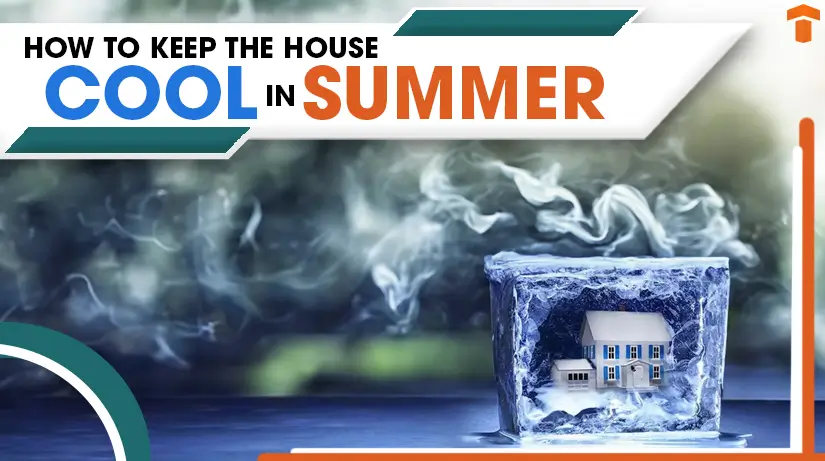How to Keep your House Cool in Summer?
May 30, 2024
Category: Others
Admin

How to keep your house cool in summer is a common concern because the temperature in our homes can get uncomfortably high. Although air conditioning can provide some relief, the initial costs and electricity bills can be significant. In addition, conventional air conditioning is believed to contribute to ozone depletion and global warming.
This article offers some cost-effective choices and common advice on how to keep the house cool in summer.

Source: Onya Magazine
Reflecting Heat Away
Roofs
About one-third of the total heat enters through the roof. Traditional roofing materials, even in light shade, can absorb a lot of sunlight. One possible solution is to cover your existing roof with a reflective coating.
Walls
The colour of the walls is not as important as that of the roof, but it does affect heat gain somewhat. Light-coloured walls absorb less heat than dark walls, which helps keep rooms cooler.
Windows
Around 40% of the unnecessary heat that accumulates in your home enters through windows. Reflective window coatings are one method for directing heat away from your home.
Solar heat gain
In the summer, due to the higher position of the sun in the sky and longer daylight hours, there is a substantial quantity of solar heat gain.
Insulation and shading are effective strategies to block heat. Insulation enhances home comfort. It reduces the need for mechanical cooling equipment like air conditioners and fans. Shade devices absorb or reflect solar heat by blocking sunlight.
Insulation
Weatherization techniques like insulation, weatherstripping, and caulking act as protective shields. Outside air is not a major contributor to inside temperature. However, it is still a good idea to keep it outside.
Shading
Shading homes can lower indoor temperatures by up to 11°C. Trees and other plants, as well as outdoor or inside shades, can provide effective shading.
– Landscaping
Landscaping is a natural and stylish technique to shade your home and prevent light. A well-positioned tree, bush, or vine can give shade while also improving the appearance of your home.
– Shading Devices
Both external and interior shades regulate heat gain. Outdoor shades are more effective because they block sunlight from reaching the windows. Awnings, louvres, shutters, sliding shutters, and solar screens are some examples of exterior shading.

Reducing Internal Heat Gain
Our regular activities generate heat and moisture within our homes which is often neglected.
Simple modifications can improve comfort and minimise air conditioning costs by lowering temperatures and humidity levels.
Energy-Efficient Lighting:
Incandescent lamps should only be used when needed because they produce a lot of heat. Consider using small fluorescent lamps instead. These lamps use 75% less energy and emit 90% less heat.
Energy Efficient Appliances
They generate less heat and consume less energy. When buying appliances, make sure to keep energy efficiency in mind. Look out for the EnergyGuide badge on appliances.
Reschedule
Most electric appliances, including stoves and washing machines, generate a lot of heat.
This increases the cooling load and potentially reduces comfort. Therefore, they should be used in the evening when temperatures drop.
Turn it off
To avoid needless heat buildup, turn off or disconnect all equipment when not in use.
Ensure proper ventilation.
Use exhaust fans to swiftly remove heat and moisture while cooking or bathing.
Conclusion
Understanding how to keep the house cool in summer can improve comfort and reduce energy costs. Indoor temperature can be effectively managed through strategies such as reflective coatings, insulation, shading and energy-efficient devices. Construction of houses on the concept of green building structures can also help to defeat heat in summer along with other benefits. These cost-effective and eco-friendly tips will help to beat the summer heat.
FAQs
Q1. Does the colour of the house affect the inside temperature?
Ans. Light-coloured exteriors reflect more sunlight keeping the home cooler.
Q2. How can insulation help in summer?
Ans. Insulation prevents heat from entering the house, keeping it cool inside.
Q3. How can heat from electronic devices be reduced?
Ans. Turn off or unplug electronic devices when not in use. They produce heat even in standby mode.








